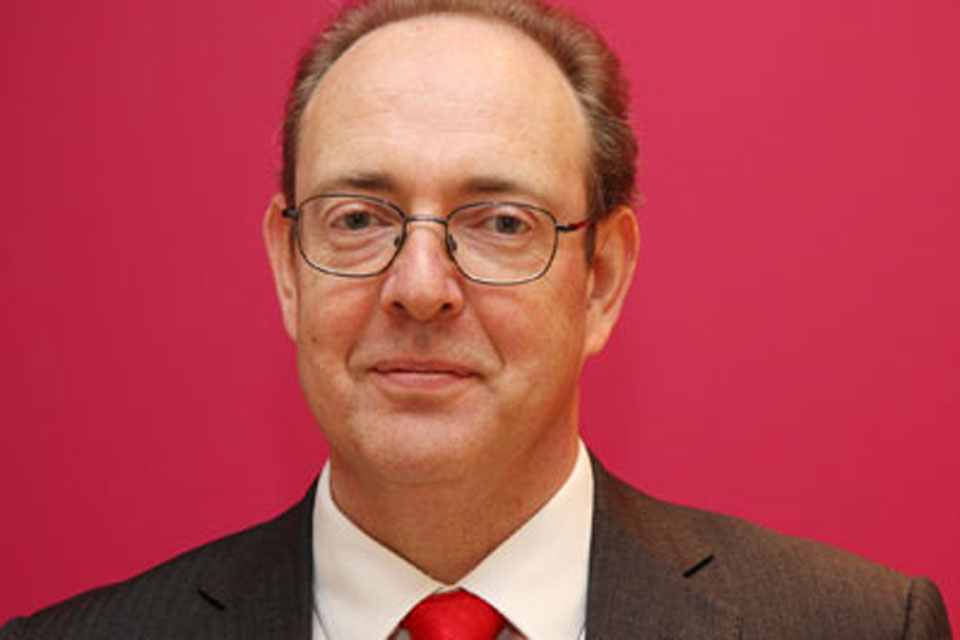India Energy Security Scenarios 2047
Transcript of a speech at India Energy Security Scenarios 2047 in New Delhi, Friday 28 February 2014, by Sir James Bevan KCMG, British High Commissioner to India.

The British Prime Minister, David Cameron, has visited India three times since he took office in 2010 – an indication of his personal commitment to build a stronger, wider, deeper partnership between the UK and this great country of India.
When my Prime Minister met Prime Minister Singh here in Delhi a year ago, they agreed to strengthen further the collaboration between India and the UK. That collaboration is not a diplomatic nicety. It has a clear purpose: to improve the lives of all our citizens and to make our countries more secure and more prosperous.
One area on which the two Prime Ministers focused in particular was energy. They agreed that energy security is a major issue confronting both the UK and India and that we should cooperate to face this common challenge. They welcomed the growth in our research and development partnerships. And they agreed to deepen policy, commercial and research collaboration on energy. Since then we’ve seen substantial progress.
Our commercial partnerships are growing. UK companies are now the biggest international investors in India’s energy sector. The BP/Reliance joint venture to develop India’s oil and gas reserves is not just the UK’s single biggest investment in India: it is the biggest single foreign investment in India ever. In the last year British Gas have signed a major deal to supply gas to Gujarat. Shell are an important player here, as are Cairn Energy who discovered and helped develop one of India’s biggest oilfields in Rajasthan. All of these British companies are playing a key role in meeting India’s energy needs and promoting India’s energy security.
We’re working ever more closely with the Indian government and with India’s states to exchange policy ideas and expertise on a whole range of issues.
Part of the reason for this close engagement is that the UK and India share many of the same energy security challenges. We both need to rely less on imported energy. We both need to become more energy efficient. We both need to find ways to make the most of our existing domestic reserves. We both need to unlock our potential in new and renewable energy. And we both need to get the economics of energy right.
That is why in 2008 the UK began developing an economic pathways model which sought to model different ways of meeting our energy needs in 2050. We shared this model with the Indian government. And you have developed it to suit your own unique circumstances and requirements.
Why do we need to think now about 2047? Because the decisions we make now will impact on our energy security and sustainability in 30 or 40 years. We need the evidence to back up those decisions, because we owe it to our children to get them right.
I want to close by paying tribute to Dr Ahluwalia (Montek Singh Ahluwalia) and Dr Abdullah (Farooq Abdullah) for their leadership in this field, to the Planning Commission team, and to everyone else who has worked to make today a reality.
I can offer no higher praise than to say that the way the Indian side have done this is the exact opposite of how it would be done in the British TV series Yes Minister. As we Brits and you Indians both know, Yes Minister is not a comedy but a documentary. There is a moment in one episode where the devious head of the civil service, Sir Humphrey, explains to the innocent Minister what Sir Humphrey calls the three articles of Civil Service faith, which are these: it takes longer to do things quickly, it’s more expensive to do them cheaply and it’s more democratic to do them in secret.
I have to say that to your great credit you have broken all three of these tenets of the (fictional) British civil service. You have moved with great speed in developing your own energy model. You have done it efficiently and at low cost. And – what would probably shock Sir Humphrey most - you have not done it in secret. On the contrary, you have been open and inclusive in developing your model and in sharing it with everyone through the website we have launched today.
So I congratulate all on the Indian side for your efforts. I am delighted that the UK has been associated with this exciting project. My government will be happy to support further work on it. We look forward to continuing our partnership with India to build a better future for our peoples.